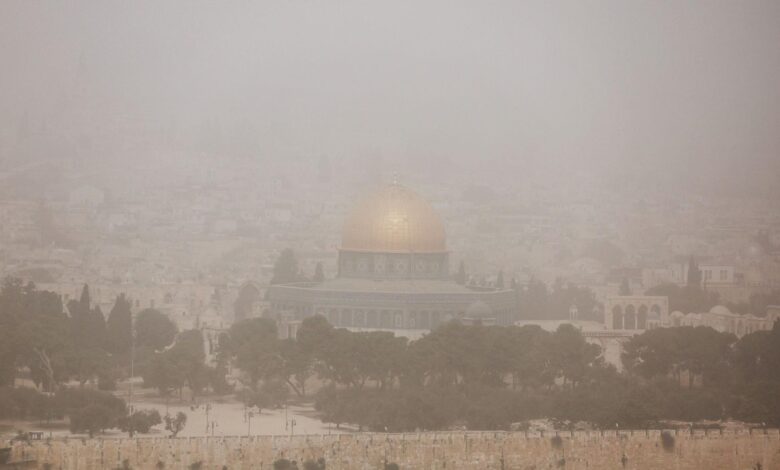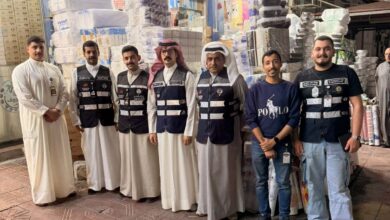Dust storms and heat waves sweep Arab region, disrupts flights, power
Thousands hospitalized in Middle East as experts continue to warn of rising health risks; recommends wearing masks, staying indoor particularly those suffering from asthma

Several Arab countries have been bracing for dust storms, sandstorms, and extreme heat these days as unstable weather conditions are sweeping across the regions sparking growing concern, prompting governments to issue warnings urging citizens to take precautions.
Images and videos from Jordan, Palestine, Saudi Arabia, and Iraq showed thick clouds of dust engulfing cities and regions, with visibility dropping sharply in some cases even to below zero in open areas.
These storms coincided with intense heat waves in Jordan and Iraq, and in Saudi Arabia, with some areas experiencing the unusual combination of dust storms and rain.

In Jordan and the Palestinian territories, footage posted online showed streets and vehicles blanketed in dust, while meteorologists warned of dangerous conditions for people with respiratory problems.
The Jordan Meteorological Department, advised people to wear masks, staying indoors, and exercising caution in desert areas, where visibility on external roads has sometimes dropped to zero.
The adverse weather also disrupted air travel in Jordan. The Civil Aviation Authority chief Haitham Misto confirmed that six commercial flights were diverted from Queen Alia International Airport to other airports due to visibility falling below the 300-meter safety threshold.
The Civil Defense teams reported handled several cases of suffocation and oxygen deficiency, and universities temporarily switched to remote education.
In Saudi Arabia, the Meteorological Authority warned of dust-laden winds across eastern and central regions, urging residents to limit sun exposure during peak hours, stay hydrated, and protect themselves from inhaling dust. Makkah and other areas experienced a rare mix of rain and airborne sand.
Iraq is facing one of the harshest heat waves in years, with temperatures hovering around 50°C. The intense heat has triggered widespread power outages, forcing households to rely on private generators that cannot fully power air conditioners.
The authorities are working to restore electricity amid the high demand. Meanwhile, a recent sandstorm in southern Iraq led to more than 3,700 cases of suffocation and forced the closure of airports.
Health experts and the World Health Organization has warned that these events are becoming more frequent and severe.
The Jordanian Society for Respiratory Care stressed that inhaling dust can cause serious respiratory complications, particularly for those suffering from asthma and allergy.
It recommended staying indoors, wearing masks, keeping windows closed, using protective eyewear, and ensuring asthma patients carry emergency inhalers at all times.
Follow The Times Kuwait on X, Instagram and Facebook for the latest news updates












